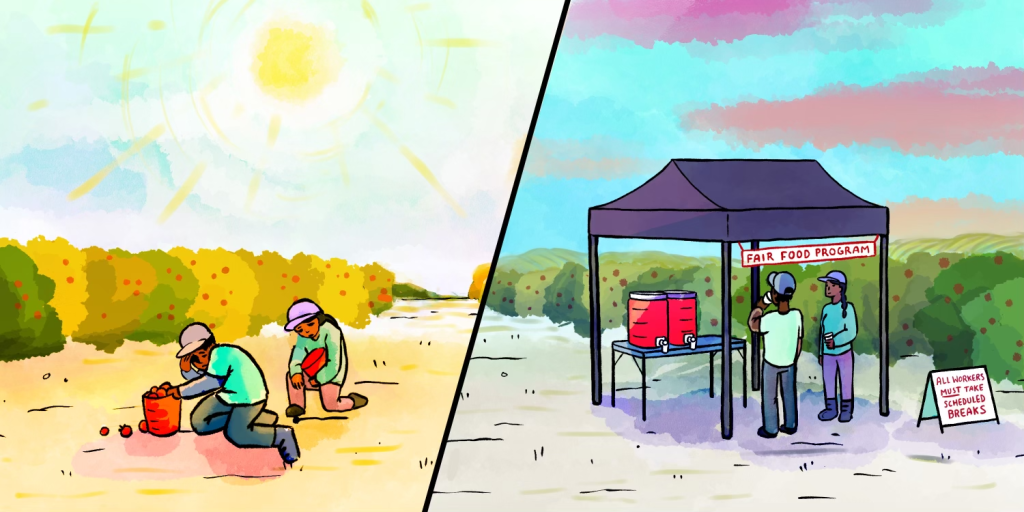Lupe Gonzalo: “For years, those with greater economic and political power have taken on a great debt from Nature. The moment has arrived to pay the price, but the least powerful and poorest in society are those that are having to pay… For vulnerable communities like ours, we have to find solutions together to protect ourselves against the effects of climate change. Poverty and powerlessness have put us at risk for too many decades and, here in Immokalee, we are changing that story.”
Cruz Salucio: “The harsh reality is temperatures are rising and workers feel that and know it is happening… Putting this tool [the Fair Food Program] in the hands of workers’ ability to protect one’s own health is incredibly important in this moment.”
As world leaders gathered in Glasgow last month to take turns giving rousing speeches and formulating new pledges in response to climate change, farmworkers in the Fair Food Program returned to Florida’s fields for the fall harvest season protected by the FFP’s best-in-class, enforceable heat safety standards drafted and implement this past summer in response to the growing climate crisis.
This summer, we all looked on in horror as the headlines piled across the country telling story after story of terrible, preventable deaths and grave illness affecting workers who toil outside in dangerous heat. As the world slowly comes to grips with the reality that climate change is no longer a distant threat but in fact already here – in the form of unprecedented heatwaves and natural disasters – farmworkers could not afford to wait for a top-down emergency response that may in fact never come.
The power of the Fair Food Program can often be understood in contrast: where labor inspectors can’t reach, the FFP’s in-depth monitoring and worker-driven complaint mechanisms are there; where voluntary action falls short, the binding market consequences of the FFP ensuring accountability are there. And now, where essential health and safety protections at the policy level are debated but never materialize, the FFP is leveraging its unique partnership among workers, growers, and buyers to draft and promulgate concrete preventions – against both COVID and heat stress – that are saving lives even as we write this letter.
Farmworkers beyond the Program can’t wait any longer. Will you contribute $10, $100, or $1,000 today so we can ramp up our expansion efforts and bring the protections of the Fair Food Program to more workers?

